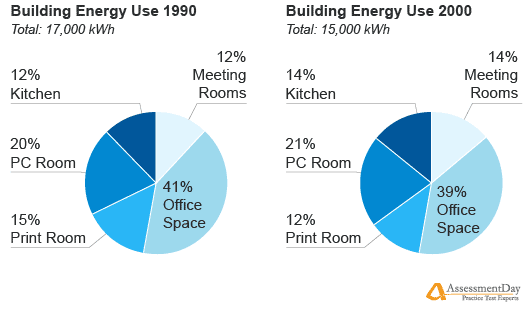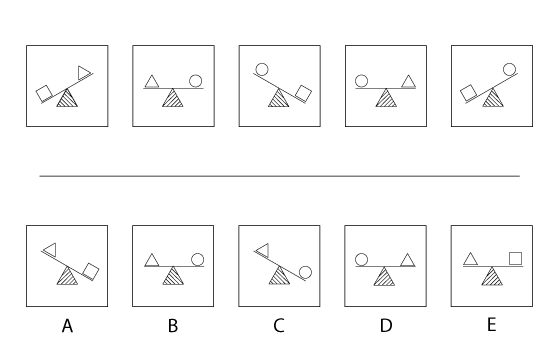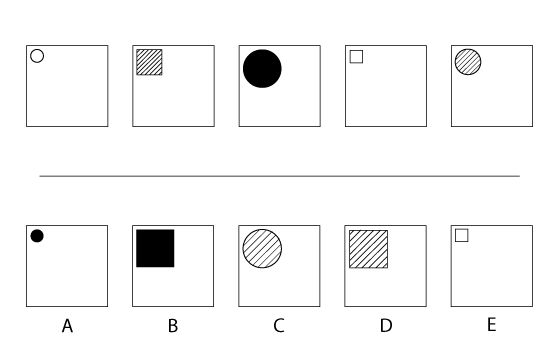Cognitive Ability Tests
A detailed summary of what cognitive ability tests are, why and how they are used, and how to improve your cognitive ability score.



Updated:
Thousands of applicants use our aptitude testing platform to improve their cognitive ability test score.
Page contents:
Jump to:Looking to hire?
We recommend Test Partnership for companies seeking reliable hiring tests.

What is a cognitive ability test?
A cognitive ability test is a measure of your mental ability. It could be a test that targets a specific cognitive ability such as numerical or it could target a combination of abilities such as numerical, verbal and non-verbal whereby this test would be called a general cognitive ability test.
Within the general cognitive ability test, there will likely be sections where they have broken down the individual cognitive abilities (numerical, verbal, etc.) into sub-tests. It's unlikely you will face one test which has all the different question types jumbled together.
Cognitive ability tests are widely-used in recruitment in order to quickly assess a candidate's mental ability and allow the employer to better understand the intelligence of the candidates applying for their roles.
Did You Know
Cognitive ability tests strongly correlate well with academic achievement and perceptions of how "smart" someone is.
The different types of cognitive ability tests
As mentioned, there are many abilities that can be measured in cognitive ability tests. Here is a list of all the different types of aptitude tests that could be sub-tests in a general cognitive ability test:
Most popular general cognitive ability tests
Some of the most common general cognitive ability tests that are used are:
- Criteria Cognitive Aptitude Test (CCAT) - CCAT is a very common general cognitive ability test that is used in recruitment. We have a CCAT guide to help candidates learn about the test and prepare.
- McQuaig Mental Agility Test (MMAT) - The MMAT is a 15 minute cognitive ability test featuring 50 questions.
- Talogy Logiks General - Formerly known as the Cubiks Logiks general test, the Talogy Logiks General test is commonly used to assess cognitive ability in recruitment.
- Thomas International General Intelligence Assessment (GIA) - The GIA is very effective at assessing a candidate's ability to quickly grasp the requirements of a new role, and as such is one of the most common general cognitive ability tests used by employers.
- Predictive Index Learning Indicator (PI LI) - The PI LI, formerly known as the Professional Learning Indicator (PLI), is a 12 minute test from Predictive Index comprising 50 questions to test general cognitive ability.
- Revelian Cognitive Ability Tests (RCAT) - The Revelian Cognitive Ability Test is a 20 minute test comprising 51 questions, which tests cognitive ability.
- Wonderlic Personnel Test (WPT) - The WPT, also known as the Wonderlic Cognitive Ability Test, is a popular cognitive ability test used for pre-selection.
- Hogan Business Reasoning Inventory (HBRI) - The HBRI is a cognitive ability test measuring qualitative reasoning and quantitative reasoning.
All of these cognitive ability tests measure something called 'g', this is known as general intelligence.
The tests will vary slightly in format and the number of questions and time limits. However, they will all be 'speed tests', which will require candidates to answer questions very quickly and it is very common for candidates not to reach the end of the test due to the tight time limits.
Why do employers use cognitive ability tests?
Most employers use cognitive ability tests at some point in their recruitment process, and so you may be wondering - why? There are advantages for using cognitive ability tests in the selection process which we will cover below:
- Cognitive ability tests predict job performance - Studies have shown that cognitive ability tests are the best predictor of job performance, outpredicting more traditional methods such as interviews, assessment centres and even job experience.
- Measure potential not experience - Most traditional selection tools such as interviews and CVs are heavily biased towards people with previous job experience and communication/presentation skills. Cognitive ability tests assess a candidate's potential, not their previous experience. This makes it very useful when hiring young candidates and graduates.
- Very cost effective - Employers can save a lot of money using cognitive ability tests as it allows the employer to reduce the size of their applicant pool down to a much more manageable number quickly and easily. This reduced candidate pool now allows the employer to save money and time by interviewing only the select few candidates with the highest potential, no longer will the employer have to spend hours interviewing/sifting through CVs of candidates that do not meet the employer's requirements.
- Reduce employee churn - One of the best ways to improve employee retention is to hire the candidates best suited to the role. As cognitive ability tests improve
- Reduce bias - When used correctly, cognitive ability tests will help remove bias from the selection process. Interviewers may favour certain candidate's due to a selection of stereotypes based on things such as ethnicity, gender, accent and others. As cognitive ability tests simply assess a candidate's intelligence, there is no room for introducing such bias.
Start practising quality tests with a free account
Practice makes perfect
- Learn from detailed solutions
- Track your progress

Free cognitive ability test questions
So now you know what cognitive ability tests are and why employers use them, let's go over some cognitive ability test questions for you to practice.
You will find the question and answer options below and the correct answers to all questions will appear after the final question. Note down your answers and wait until the end to check your marks.
Question 1

Which space experienced the smallest reduction in kWh used between 1990 and 2000?
A) Office Space
B) Print Rooms
C) Meeting Rooms
D) PC Rooms
Question 2
A building society is a financial institution owned by its members as a mutual organisation. Building societies offer banking and related financial services such as mortgages. The term “building society” arose in 18th century Britain from cooperative savings groups. In the UK today, building societies actively compete with banks for most consumer banking services, especially with regards to mortgages and saving accounts. The number of building societies in the UK fell by four during 2008 due to a number of mergers and the financial crisis. Due to further mergers and demutualisations, the current number of building societies is 47.
The number of building societies in the UK fell by how many in 2008?
A) 1
B) 2
C) 3
D) 4
Question 3

Which of the answer options above comes next in the series?
Question 4

Which of the answer options above comes next in the series?
Answers
Question 1: D) PC Rooms
Question 2: D) 4
Question 3: D
Question 4: B
Now practise full-length aptitude tests
Now you know all about cognitive ability tests, you're ready to take on some full length cognitive ability tests.